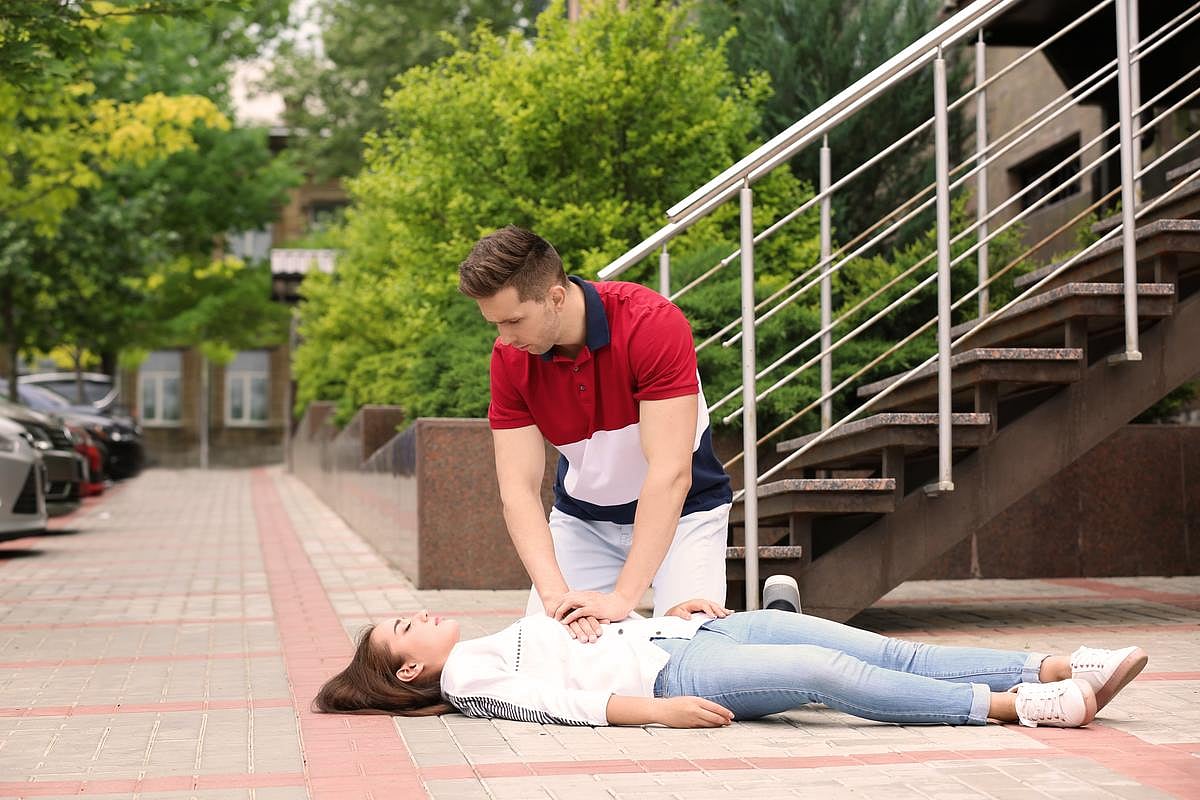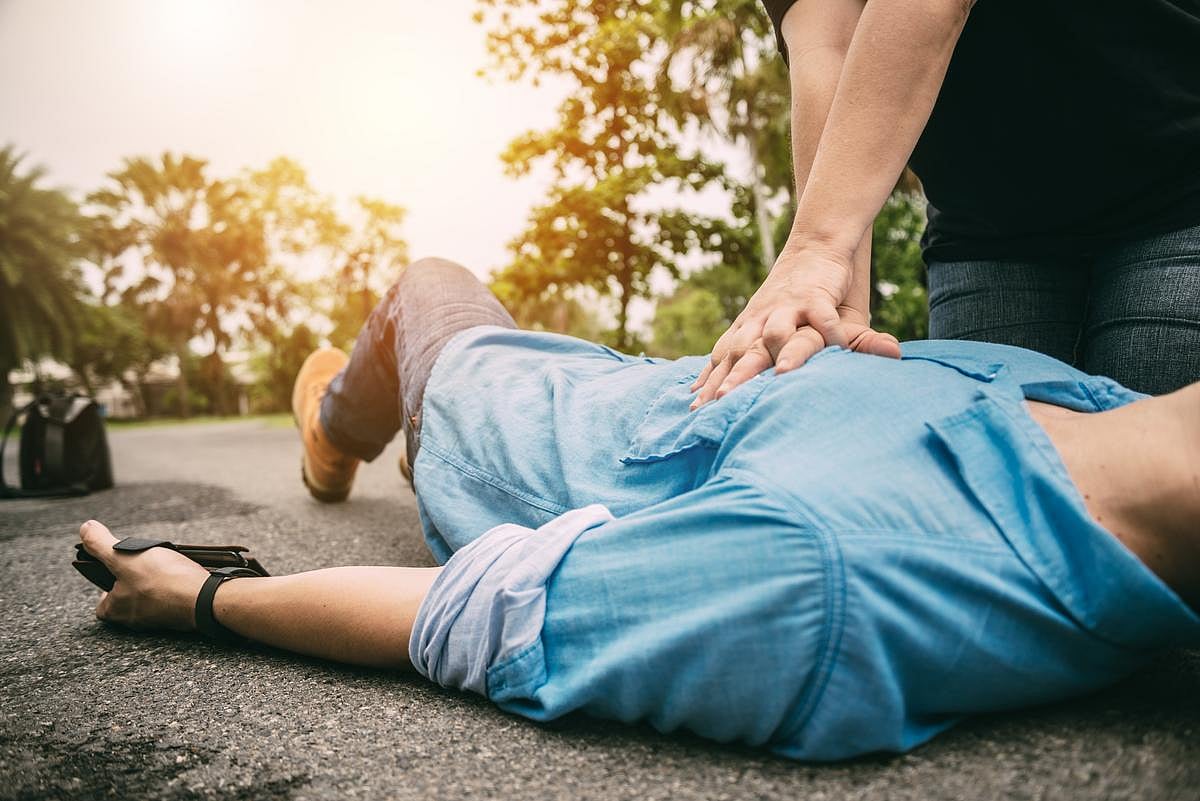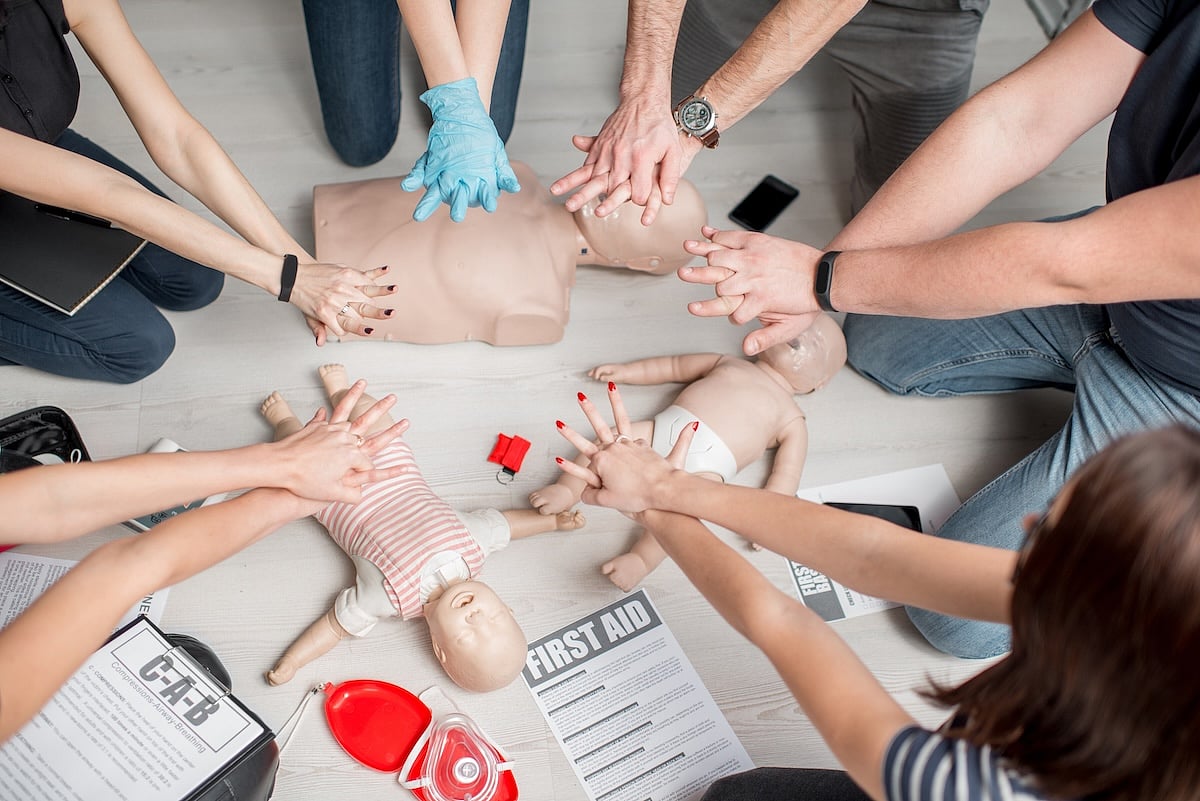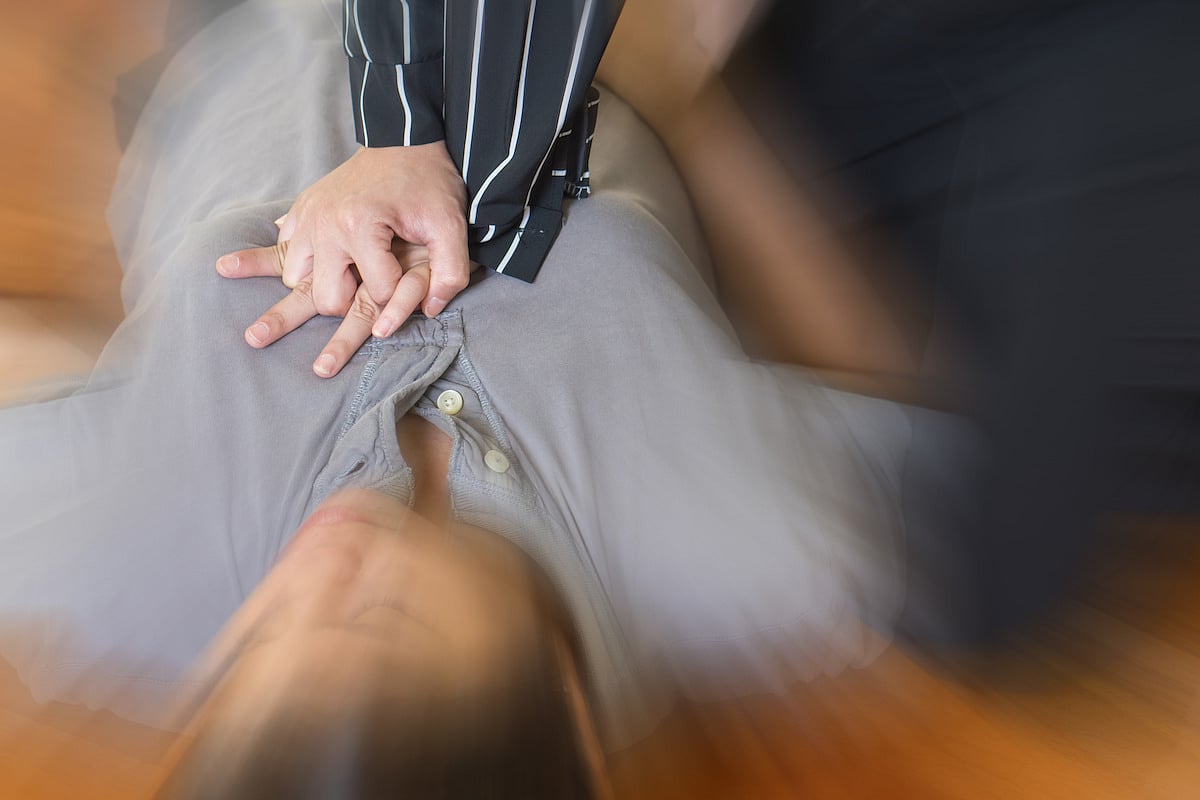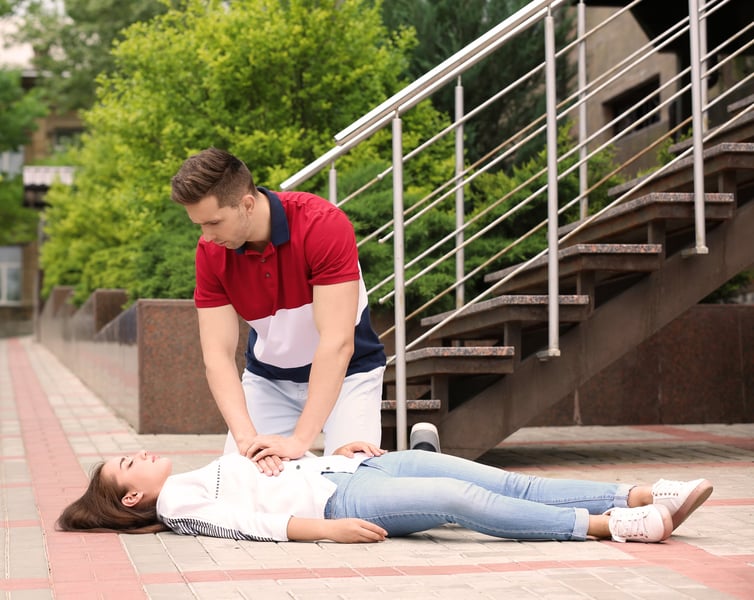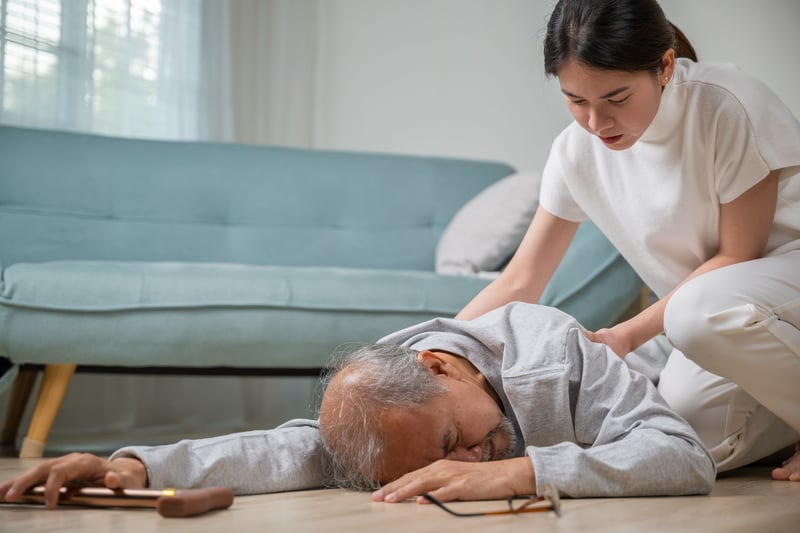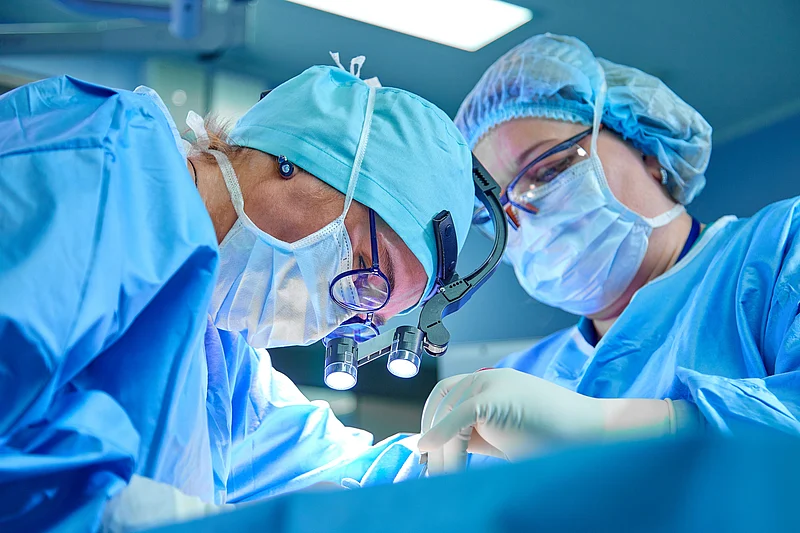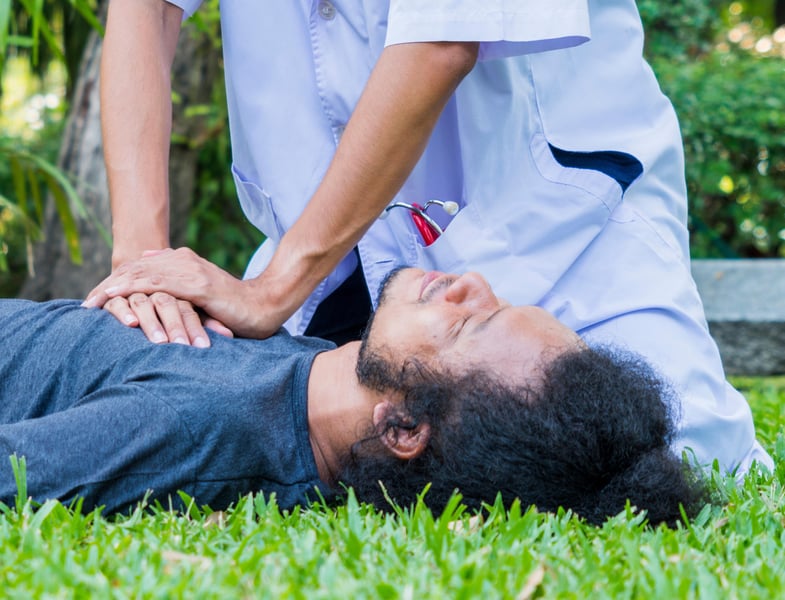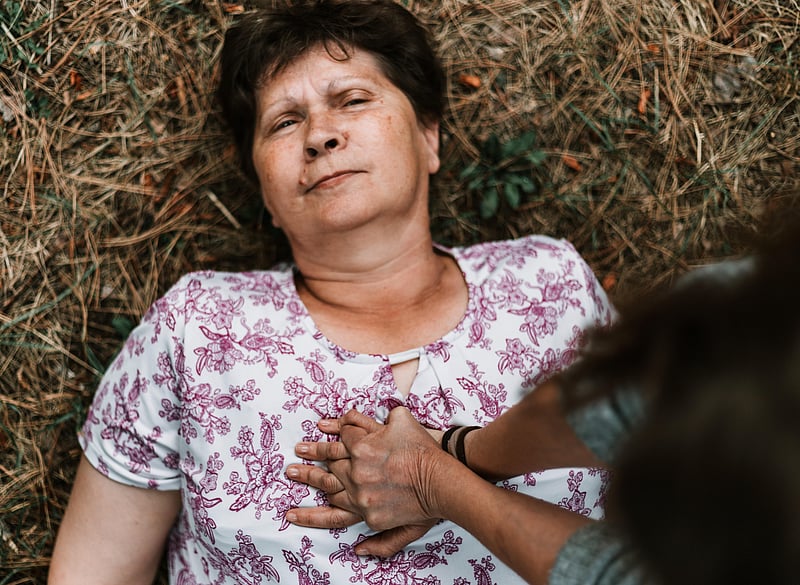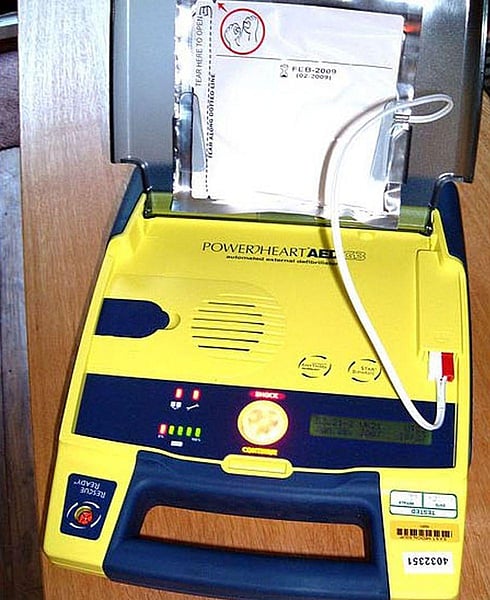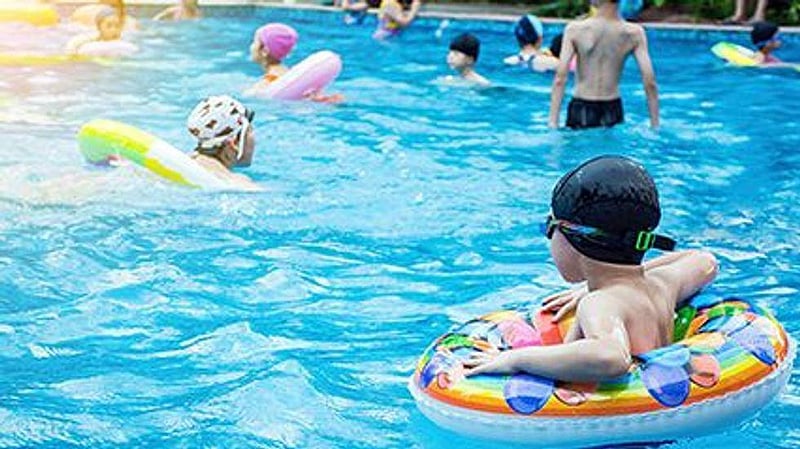Patient Resources
Get Healthy!
Results for search "CPR".
Health News Results - 29
Confused About CPR? Don't Count On TV Shows For Accurate Depictions, Study Warns
- Dennis Thompson HealthDay Reporter
- January 13, 2026
- Full Page
How do you perform CPR properly? Who’s most likely to need CPR? Where are they most likely to collapse?
Don’t turn to scripted TV shows for answers to these questions, a new study warns.
What Is CPR and Who Needs It?
- Elizabeth Froelich, BS, Paramedic, Lead Instructor HealthDay Reporter
- January 9, 2026
- Full Page
Cardiopulmonary resuscitation (CPR) is a vital skill anyone can perform. It is administered to an unconscious person who is not breathing normally.
More than 70% of out-of-hospital cardiac arrests happen at home, according to the 2024
Kids Need CPR More Promptly Than Adults Following Cardiac Arrest
- Dennis Thompson HealthDay Reporter
- November 4, 2025
- Full Page
Thousands of U.S. kids each year collapse from cardiac arrest and need CPR to save their lives.
But CPR must start for them in half the time required for adults, according to results that will be presented at the American Heart Association annual meeting in New Orleans o...
New Guidelines Detail How To Respond To A Choking Emergency
- Dennis Thompson HealthDay Reporter
- October 27, 2025
- Full Page
Want to be ready to respond if an adult starts choking on their food, or a child on some object they’ve swallowed?
Updated guidelines are available that let people know just what to do if an infant, child or adult is choking — and it’s pretty much the s...
CPR In Space? Best Method Identified, Researchers Say
- Dennis Thompson HealthDay Reporter
- August 28, 2025
- Full Page
As humans begin to colonize space, it’s inevitable that some will suffer a cardiac arrest.
Space CPR conducted in weig...
'Tongue Swallowing Prevention': The Wrong First Move When Cardiac Arrest Strikes
- HealthDay Reporter
- Ernie Mundell
- July 30, 2025
- Full Page
When a person collapses from cardiac arrest, many on the scene first try to prevent them from swallowing their tongue, believing it to be necessary in helping them to breathe.
Experts call that a potentially fatal misconception that could delay lifesaving CPR.
...Prompt CPR Saves Lives, Regardless Of Who Performs It
- HealthDay Reporter
- Dennis Thompson
- March 18, 2025
- Full Page
It doesn’t matter if CPR is performed by a doctor, a paramedic or an unskilled, unpracticed passerby -- when performed promptly, it will increase a person’s odds of survival, a new study says.
Bystanders More Readily Perform CPR If 911 Operator Instructs
- HealthDay Reporter
- Ernie Mundell
- November 11, 2024
- Full Page
You encounter someone collapsed on the sidewalk and quickly dial 911.
Whether or not the operator instructs you on how to deliver cardiopulmonary resuscitation (CPR) could mean life or death, especially if the victim is female, new research shows.
In a study ...
Bystander CPR More Likely to Save Your Life If You're White and Male: Study
- HealthDay Reporter
- Dennis Thompson
- August 7, 2024
- Full Page
Whites are three times more likely to survive a cardiac arrest after receiving bystander CPR than Black adults are, a new study has found.
Likewise, men are twice as likely to survive after bystander CPR than women, researchers found.
“CPR saves lives -- that...
Only Half of Americans Feel Prepared to Save a Life in Emergencies: Poll
- HealthDay Reporter
- Dennis Thompson
- May 22, 2024
- Full Page
Only about half of Americans feel prepared to help someone during a medical emergency, a new poll finds.
Only 51% of Americans think they would be able to perform hands-only CPR to help someone who's collapsed. Similarly, only 49% feel they could step in and staunch seri...
Black, Hispanic Americans Getting Savvier About CPR
- HealthDay Reporter
- Dennis Thompson
- April 24, 2024
- Full Page
Black and Hispanic Americans are gaining a better understanding of CPR, with a growing number expressing confidence they could use it to save a life, a new survey finds.
About 44% of Black Americans now feel confident performing conventional CPR, up from 30% just three y...
Hispanics With Kidney Disease Face Higher Risk for Cardiac Arrest
- HealthDay Reporter
- Cara Murez
- October 12, 2023
- Full Page
Hispanic folks with chronic kidney disease should have early heart health screenings, new research suggests, because they're at high risk for sudden cardiac arrest.
A team from the Smidt Heart Institute at Cedars-Sinai in Los Angeles discovered this while working to lear...
In Public Spaces, Women Less Likely to Get CPR If Cardiac Arrest Strikes
- HealthDay Reporter
- Cara Murez
- September 18, 2023
- Full Page
CPR could save your life if you suffer cardiac arrest in a public place, but you're less likely to receive it if you're a woman, a new study finds.
The findings were presented Monday at the European Emergency Medicine Congress, in Barcelona.
"In an emergency when s...
40% of Patients Recall Some Consciousness During Near Death Experiences
- HealthDay Reporter
- Cara Murez
- September 14, 2023
- Full Page
People have long talked about having near-death experiences in which they felt they were looking down on themselves while others tried to save them.
Now, researchers have documented some of those experiences. In a study published online recently in the journal
Need Quick Help Learning CPR? Don't Rely on Alexa, Siri
- HealthDay Reporter
- Cara Murez
- August 28, 2023
- Full Page
If you need quick directions on performing cardiopulmonary resuscitation (CPR) in an emergency, don't rely on Alexa, Siri or another voice assistant.
A new study finds the directions provided by these AI (artificial intelligence) helpers are inconsistent and lack re...
Bystander CPR, Defib Use Saves Lives Even If Ambulance Arrives Quickly
- HealthDay Reporter
- Cara Murez
- August 24, 2023
- Full Page
Bystander aid using CPR and a defibrillator can be critically important for saving lives when someone has a cardiac arrest -- even when an ambulance arrives quickly, say researchers.
A new study finds that when a bystander uses a defibrillator, on top of CPR, on someone ...
Asian-Americans Less Likely to Survive Cardiac Arrest Despite Equal CPR Efforts
- HealthDay Reporter
- Steven Reinberg
- July 27, 2023
- Full Page
Asian adults in the United States who suffer cardiac arrest are less likely to survive than white adults, even when given bystander CPR, a new study finds.
Asian adults have similar rates of bystander CPR after a cardiac arrest, but are 8% less likely to survive to hosp...
Frailty Greatly Lowers Survival in a Surgical Crisis
- HealthDay Reporter
- Cara Murez
- July 6, 2023
- Full Page
When frail patients go into cardiac arrest and need cardiopulmonary resuscitation (CPR) during surgery, they're more likely to die than those who are stronger, a new study shows.
Researchers from Brigham and Women's Hospital in Boston studied the impact of frailty on sur...
Even Preschoolers Can Help Save a Life, Heart Experts Say
- HealthDay Reporter
- Cara Murez
- May 18, 2023
- Full Page
If you're old enough to dial 911, you're old enough to be a lifesaver.
Building lifesaving skills can start as young as age 4 and be expanded over the years, the American Heart Association and others advise in a
Damar Hamlin Teams With Heart Experts to Promote Life Saving CPR
- HealthDay Reporter
- Dennis Thompson
- February 2, 2023
- Full Page
Buffalo Bills safety Damar Hamlin is issuing a CPR challenge to promote use of the emergency procedure that saved his life on national television.
Hamlin, 24, suffered cardi...
Poll Finds Nearly Half of Americans Unprepared for Medical Emergency
- HealthDay Reporter
- Cara Murez
- January 20, 2023
- Full Page
A medical emergency can happen at any moment. Will you be prepared?
1 in 5 People Saved by CPR Recall 'Lucid Dying'
- HealthDay Reporter
- Cara Murez
- November 7, 2022
- Full Page
People have long talked about having near-death experiences in which they felt they were looking down on themselves while others tried to save them.
Now researchers have documented some of those experiences. In a new study, investigators found that about 20% of patients...
This Hunting Season, Know Your CPR
- HealthDay Reporter
- Cara Murez
- November 1, 2022
- Full Page
It might seem like guns would be the biggest safety concern for hunters, but there's another real danger.
The possibility of having a heart attack or stroke while hunting is higher with the combination of physical exertion, excitement and cold air constricting blood ves...
Black Americans Less Likely to Receive Lifesaving CPR: Study
- HealthDay Reporter
- Amy Norton
- October 27, 2022
- Full Page
When someone collapses in front of witnesses, the chances of receiving potentially lifesaving CPR may partly depend on the color of their skin, a new study suggests.
Researchers found that when Black and Hispanic Americans suffer cardiac arrest, they are up to 37% less l...
Firefighters, Police Can Be Lifesavers If You're Hit by Cardiac Arrest
- HealthDay Reporter
- Robert Preidt
- April 1, 2022
- Full Page
You have a much better chance of surviving a cardiac arrest if non-medical first responders immediately begin CPR or use an automated external defibrillator (AED), according to a new study.
Black, Hispanic Americans Less Likely to Get Bystander CPR
- HealthDay Reporter
- Cara Murez
- March 28, 2022
- Full Page
If you collapse in a public place from a cardiac arrest, your chances of receiving lifesaving cardiopulmonary resuscitation (CPR) are substantially better if you're white inste...
Heart Defibs in Schools Are Saving Staff Lives: Study
- HealthDay Reporter
- Robert Preidt
- October 15, 2021
- Full Page
Adult staff in schools are more likely than students to suffer sudden cardiac arrest, but automated external defibrillators (AEDs) are often used and improve the chances of survival, a new study finds.
AEDs are portable devices that deliver an electric shock to try and r...
Bystanders Can Make the Difference for a Drowning Child
- HealthDay Reporter
- Robert Preidt
- October 12, 2021
- Full Page
A drowning child has a much lower risk of severe disability or death if a bystander steps in, even without cardiopulmonary resuscitation (CPR), new research finds.
"Bystanders play a critical role in preventing poor outcomes in childhood drowning by instituting safe, ear...
When Cardiac Arrest Strikes, Survival Odds Are Better at Airports
- HealthDay Reporter
- Steven Reinberg
- September 20, 2021
- Full Page
If you have a cardiac arrest, your odds of survival are best in an airport or airplane, a new study finds.
That's because automated external defibrillators (AEDs) are readily available and so are people ready to help, researchers explained.
"Our findings emphasize ...


